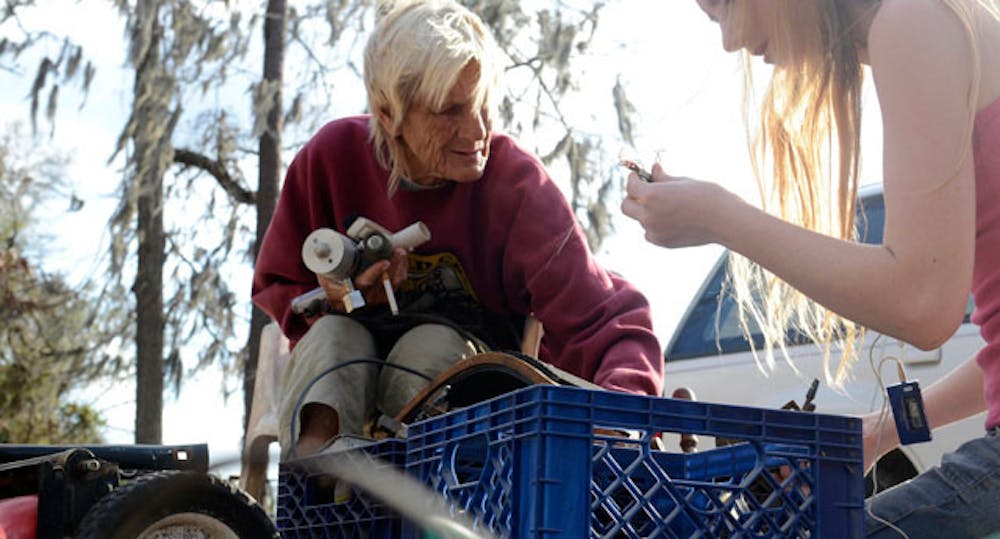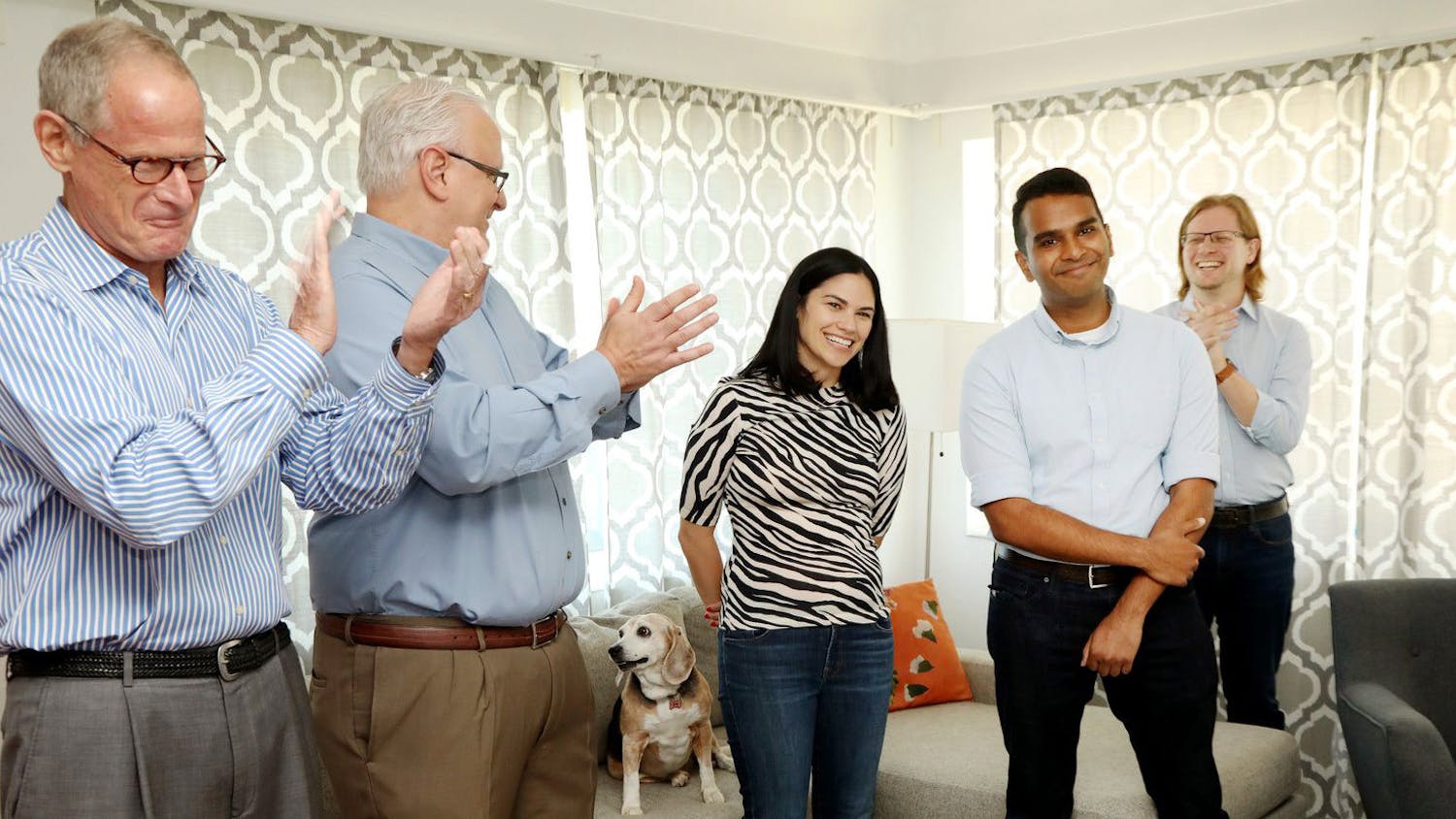Geneva Jarvis hasn’t missed a day of work in 25 years.
She wakes up early in her log cabin and walks onto her wooden porch. She meanders past thousands of musty and yellowed books, endless tables of dusty glass, Coca-Cola and Pepsi bottles, stacks upon stacks of rubber tires, aisles of rusty metal blades and droves of pots and pans.
Then she heads to the front of her land, creaks open the metal gate to the Orange Lake Antique Village and Trading Post, and sits down in an old lawn chair.
She waits, smiling.
When people drive by Jarvis’ property on U.S. Highway 441, south of Gainesville and just past McIntosh, the glimmer of glass bottles and the shine of the scrap metal might catch their eyes. A glance toward the side of the road reveals quite a sight: about four acres of junk.
Jarvis, 67, and also known as the “junk lady” among some UF students, sells this junk.
Because she doesn’t know exactly what everything is worth, she calls it like she sees it.
When customers approach her, they see a frail and worn-looking woman, the lines in her skin deepened by too many years baking in the sun. There is almost always a cigarette in her hand, and the cigarette is usually burned close to its end — one stick from the two packs she normally smokes in a day.
Although formidable to some from afar, up close, Jarvis’s bright blue eyes and clever smile reel you in. She doesn’t have all of her teeth, but she probably doesn’t need them. She walks taller and speaks louder than one might expect.
When her customers finish shopping, they bring her bags full of what they would like to take home. Some buy broken stereo speakers for $5. Others peruse stacks of personalized memorabilia to find something for an art project. Some locals like to stop by for an old dining set ranging from $70 to $100 or a chest of drawers for $30.
“I decorated my whole house buying stuff from here,” said Sid McCarty, a regular at Jarvis’ lot.
McCarty has gone to the trading post several times a week for “a long time,” Jarvis said.
Jarvis’ prices haven’t changed since she opened the lot.
“The prices are whatever,” she said. “I’ll charge people a quarter for some things, and bigger things cost more.”
Jarvis, with a smirk of experience, said, “I’d rather get rid of the stuff than have it sitting around for five years.”
Five years isn’t the longest something has laid around here. She and her husband, Randy, get their trade through estate sales and foreclosed properties. They take everything they can.
Toilet bowls, lawn mowers, cups, college degrees, children’s toys, electronics, sofas, knife sets, old empty bottles of booze — Jarvis takes everything.
Before Jarvis and her husband sold junk together, Jarvis worked in Orlando with a different partner. All told, she has been in this line of business for about 45 years, she said.
At this location, she’s had repeat customers, like Sid, for about 20 years. Some people have come once a week for that long. Some come more often.
Jarvis knows the regulars. She knows the ones who can’t drive by without pulling over. She knows the ones who will come in and try to steal her stuff.
“The thieves are never the ones you expect, but I know ’em all,” she said. “What I’ll do is, when they come to pay, I’ll just charge them more for what they do show me. It ends up even.”
Although Jarvis has a license to sell the junk, her acres of treasures seem relatively unprotected.
When it gets dark and she closes the gate, nothing’s there to stop intruders: not her collection of more than 30 birds, nor her infamous pet llama, Zazoo. But one of Jarvis’ sons, Huber, is usually on watch at night.
The glory of it all is that it doesn’t seem anyone would really go through the trouble of stealing anything.
Some of her most common visitors are busloads of UF and Santa Fe College students, who each usually spend about $5 to $10.
One of the most common questions Jarvis gets is one of people wondering why she does what she does.
“I’m not gonna get rich off of this, but it pays the bills,” Jarvis said. “It’s better than punching a clock every day.”
Although Jarvis is past retirement age, she loves her work. She said that the older people get, the less they do, and at the end of the day it’s something to keep herself busy. She tells her customers to come back whenever they want because she’ll be out there, about 10 hours a day, seven days a week, 365 days a year, for years to come.
Slowly standing up from her chair and smoking the last of her cigarette, Jarvis’ eyes brighten.
“I’ll probably end up dying out here in this chair in this parking lot.”





![The Repurpose Project opened in 2012 and sells used items. [Photo by Valeriya Antonshchuk]](https://snworksceo.imgix.net/ufa/1cc4a7c2-befd-4d3d-9cb4-1d240d48ae15.sized-1000x1000.png?w=1500&ar=16%3A9&fit=crop&crop=faces&facepad=3&auto=format)
